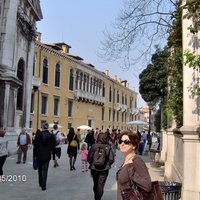Dante Studies by Jason Aleksander

The Edinburgh Critical History of Middle Ages and Renaissance Philosophy, 2020
In the first part of this chapter, I will focus on two main questions: (1) how Maimonides departs... more In the first part of this chapter, I will focus on two main questions: (1) how Maimonides departs from Aristotle in maintaining a difference of kind rather than degree in identifying prophecy rather than wisdom as the ultimate human perfection; and (2) why Maimonides does not explicitly identify a virtue of practical reasoning that corresponds to Aristotle’s understanding of phronêsis. In the second part of the chapter, I will discuss why Dante, contrary to Maimonides, emphasises the significance of practical judgement in his redeployment of Aristotelian ethical theory. I will also discuss how the didactic and protreptic purposes of his poetic discourse are shaped by the same underlying psychological theory that grounds his emphasis on this intellectual virtue. The modest aim of this chapter is to treat these two engagements with Peripatetic philosophy as case studies that reward attention to the inextricable links between politics/religion and philosophical enquiry, even against the grain of seemingly common lineages sharing similar concerns. Connected with this modest aim, this chapter will also discuss how Maimonides’s and Dante’s attention to didactic and protreptic concerns impacts their treatment of philosophical questions and therefore indicates how attention to the kairos of their writings exposes and helps appreciate their philosophical rigour.
Renaissance Quarterly, 2017
Book Review of Maria Luisa Ardizzone’s Reading as the Angels Read (Toronto: University of Toronot... more Book Review of Maria Luisa Ardizzone’s Reading as the Angels Read (Toronto: University of Toronoto Press 2016). Renaissance Quarterly 70 (2017): 1625-1627.
The Medieval Review, 2018
A review of Paul Stern's Dante's Philosophical Life: Politics and Human Wisdom in Purgatorio (Uni... more A review of Paul Stern's Dante's Philosophical Life: Politics and Human Wisdom in Purgatorio (University of Pennsylvania Press, 2018).

Stanford Encyclopedia of Philosophy, 2018
Citation: Wetherbee, Winthrop and Jason Aleksander, “Dante Alighieri,” The Stanford Encyclopedia ... more Citation: Wetherbee, Winthrop and Jason Aleksander, “Dante Alighieri,” The Stanford Encyclopedia of Philosophy (Fall 2018 Edition), edited by Edward N. Zalta
Dante’s engagement with philosophy cannot be studied apart from his vocation as a writer, in which he sought to raise the level of public discourse by educating his countrymen and inspiring them to pursue happiness in the contemplative life. He was one of the most learned Italian laymen of his day, intimately familiar with Aristotelian logic and natural philosophy, theology, and classical literature. He is, of course,most famous for having written the Divine Comedy, but in his poetry as well as his philosophical treatises and other writings, he freely mingles and synthesizes philosophical and theological language as well extensive references and allusions to scripture and classical and contemporary poetry. While his contributions to world literature and other artistic genres are universally acknowledged, his theological imagination has also remained influential from his own time to the present day. His philosophical legacy, by comparison, remains more difficult to assess, though his writings provide, at the very least, a powerful tool for the study of the landscape of late medieval and Renaissance philosophy.

Time, Space, and Structure, Presenting the Past, vol. 5, edited by Nancy van Deusen and Leonard Koff, 2016
Drawing primarily upon Dante’s three major philosophical treatises (De vulgari eloquentia, Conviv... more Drawing primarily upon Dante’s three major philosophical treatises (De vulgari eloquentia, Convivio, and Monarchia), this essay explores how Dante’s ethico-political philosophy operates within the crucial tension between the phenomenology of time as the condition for the possibility of human moral development and yet also as, metaphysically speaking, the privation and imitation of eternity. I begin by showing that, in the De vulgari eloquentia, Dante’s understanding of the poetic and rhetorical function of the illustrious vernacular is tied to his political philosophy in a way that depends upon a rich but ultimately unresolved tension between (a) the demand that only an atemporal, unchanging vernacular would be suitable for the tasks of universal monarchy and (b) the recognition that only a temporal, localized, and changing illustrious vernacular could possibly bring about the existence of the universal monarchy. In the second half of the essay, I will turn to Dante’s treatment of the providential grounding for the independence of spiritual and temporal authority in Convivio and Monarchia. I will argue that Dante’s understanding of divine providence provides common justification for the temporal and spiritual authorities whose independence he otherwise insists upon. Finally, drawing on the letter to Cangrande della Scala (the authorship of which is disputed), I will discuss how, for Dante, the providential ground for the legitimacy of temporal authority can only be discerned through the allegorical interpretation of history itself. In light of my discussion of these themes in Dante’s political philosophy and its dependence on his understanding of divine providence, I will conclude with a brief reflection on how Dante’s understanding of divine providence might help us better appreciate important aspects of the neglected legacy of Renaissance humanism in the history of early modern philosophy.

Essays in Medieval Studies, 2015
Paradiso 2’s sustained direct address warns readers unprepared for its complexities to “turn back... more Paradiso 2’s sustained direct address warns readers unprepared for its complexities to “turn back to see your shores again…for perhaps losing me, you would be lost,” but then offers the “other few” who crave “the bread of angels” the promise of a marvel that would rival the deeds of the mythological hero Jason. I will argue that, by appearing to impose this choice on its readers, this direct address in fact activates the craving for the bread of angels (for who, by obeying the interpretive imperative to make such a decision, would not also be one who thereby does choose to pursue the bread that is promised in return for this obedience?). In other words, the very act of interpreting the representation of readers as divided into those who are capable of allegorical interpretation and those who are not constructs and activates the will of a single readership for the Divine Comedy and, consequently, challenges us to provide an articulation of what it means even to read or to misread the Divine Comedy.

Essays in Medieval Studies, 2011
One widely discussed feature of Paradiso 33 is Dante’s emphasis on his failure to represent in wo... more One widely discussed feature of Paradiso 33 is Dante’s emphasis on his failure to represent in words and memory his pilgrim’s exalted vision of the Trinity. Against other interpretations of this canto, I will discuss why, despite the fact that the language of failure seeks to reinforce the poetic illusion that revelation’s authority is grounded in an unmediated access to divine truth, the theophantic moment “represented” in Paradiso 33 instead shows that revelatory experience is nothing but a product of the impulse of natural reason to exceed its own legitimate scope—that is, the theophantic moment illustrates natural reason’s inherent tendency to overstep its own limits. Consequently, I shall argue, the poema sacro’s carefully constructed representations of the pilgrim’s revelatory insight are in fact grounded in Dante’s proto-humanist understanding of the authoritative role of natural reason in representing to ourselves the possibilities of our own spiritual and earthly beatitudes.

Pedagogy: Critical Approaches to Teaching Literature, Languages, Composition, and Culture 13, no. 1 (2013): 67-76
This essay discusses five main topoi in the Divine Comedy through which teachers might encourage ... more This essay discusses five main topoi in the Divine Comedy through which teachers might encourage students to explore the question of the Divine Comedy’s treatment of philosophy. These topoi are: (1) The Divine Comedy’s representations in Inferno of noble pagans who are allegorically or historically associated with philosophy or natural reason; (2) its treatment of the relationship between faith and reason and that relationship’s consequences for the text’s understanding of the respective authoritativeness of theology and philosophy; (3) representations in the Divine Comedy that relate to the question of the practical value of philosophical (not to mention theological) speculation; (4) the text’s treatment of the respective merits of practical and contemplative activities; and (5) its implicit defense of philosophy’s authority with respect to ethical and political questions.
The Journal of Religion, 2011
I discuss Dante’s understanding that human existence is “ordered by two final goals” and how this... more I discuss Dante’s understanding that human existence is “ordered by two final goals” and how this understanding defines philosophy’s and theology’s respective scopes of authority in guiding human conduct. I show that, while Dante devalues the philosophical authority associated with the traditional Aristotelian emphasis on the significance of contemplative activity, he does so in order to highlight philosophy’s ethico-political authority to guide human conduct toward its “earthly beatitude.” Moreover, I argue that, although Dante subordinates earthly beatitude to spiritual beatitude, he nonetheless maintains that philosophy’s authority to reveal a path to spiritual beatitude requires its fundamental independence from theology.
Essays in Medieval Studies, 2010
I discuss Dante’s understanding that human existence is “ordered by two final goals” and how, for... more I discuss Dante’s understanding that human existence is “ordered by two final goals” and how, for Dante, this understanding defines philosophy’s and revelation’s respective scopes of authority in guiding human conduct. Specifically, I show that, although Dante subordinates our earthly beatitude to spiritual beatitude in a way that seems to suggest the subordination of the authority of philosophy to that of revelation, he in fact limits philosophy’s scope to an arena in which its authority is not only legitimate but also crucial to the cultivation of the higher, spiritual beatitude of human activity.
Cusanus Studies by Jason Aleksander
Nicholas of Cusa and Times of Transition: Essays in Honor of Gerald Christianson (page proofs), 2018
Nicholas of Cusa (1401-1464) was active during the Renaissance, developing adventurous ideas even... more Nicholas of Cusa (1401-1464) was active during the Renaissance, developing adventurous ideas even while serving as a churchman. The religious issues with which he engaged – spiritual, apocalyptic and institutional – were to play out in the Reformation. These essays reflect the interests of Cusanus but also those of Gerald Christianson, who has studied church history, the Renaissance and the Reformation. The book places Nicholas into his times but also looks at his later reception. The first part addresses institutional issues, including Schism, conciliarism, indulgences and the possibility of dialogue with Muslims. The second treats theological and philosophical themes, including nominalism, time, faith, religious metaphor, and prediction of the end times.

Nicholas of Cusa in Ages of Transition: Essays in Honor of Gerald Christianson, ed. Thomas Izbicki, Jason Aleksander, and Donald Duclow, Studies in the History of Christian Traditions, vol. 188. Leiden: E. J. Brill, 2018, 2018
This article discusses how Nicholas of Cusa’s speculative philosophy harbors an ecumenical spirit... more This article discusses how Nicholas of Cusa’s speculative philosophy harbors an ecumenical spirit that is deeply entwined and in tension with his commitment to incarnational mystical theology. On the basis of my discussion of this tension, I intend to show that Nicholas understands “faith” as a poietic activity whose legitimacy is rooted less in the independent veracity of the beliefs in question than in the potential of particular religious conventions to aid intellectual processes of self-interpretation. In undertaking this analysis, the paper will use Nicholas of Cusa’s De pace fidei—whose overt intention is to show that all forms of religious practice presuppose the same universal faith—as an interpretive lens to explore implications of the philosophical anthropology that Nicholas offers in treatises such as De ludo globi and De venatione sapientiae. Thus, I will argue that Nicholas’ appreciation of the inevitability of religious diversity in the temporal world funds the consistently favored view in his speculative works that “faith” is a virtue only insofar as its adherent genuinely remains in search of understanding and that, consequently, religious beliefs should function as nothing more than tools for creative activity, interpretation, and inquiry.

Oxford Bibliographies in Medieval Studies, ed. Paul E. Szarmach (New York: Oxford University Press), 2016
Given the significance of Nicholas of Cusa’s ecclesiastical career, it is no surprise that a good... more Given the significance of Nicholas of Cusa’s ecclesiastical career, it is no surprise that a good deal of academic attention on Nicholas has focused on his role in the history of the church. Nevertheless, it would also be fair to say that a good deal of the attention that is focused on the life and thought of Nicholas of Cusa is the legacy of prior generations of scholars who saw in his theoretical work an opportunity to define the most salient features of transformations in the habits of thinking leading from the Middle Ages into the epoch of modernity. Thus, although contemporary scholars have not been able to achieve any clear consensus on the question of whether Nicholas belongs to the Middle Ages or to modernity, the field of Cusanus studies has become much more attentive to the possibility that the uniqueness and significance of Nicholas’s vision is a function of his ability to synthesize and redeploy a variety of strands in the Catholic intellectual tradition—strands that are as apt to involve practical matters of canon law and church reform as they are to hinge on a unique and richly developed mystical theology. Given the flourishing of the attention devoted to Nicholas in the late 20th and early 21st centuries, the choices about which texts to include in this article were difficult ones. The rationale for this article’s predominant focus on scholarship of the late 20th and early 21st centuries is that, insofar as the recent studies listed here enter into the debates that have been shaped by their predecessors, the sources mentioned here will point readers to the prior work in the field not acknowledged here.

Mirabilia: electronic journal of antiquity and middle ages, 2014
Although Nicholas of Cusa occasionally discussed how the universe must be understood as the unfol... more Although Nicholas of Cusa occasionally discussed how the universe must be understood as the unfolding of the absolutely infinite in time, he left open questions about any distinction between natural time and historical time, how either notion of time might depend upon the nature of divine providence, and how his understanding of divine providence relates to other traditional philosophical views. From texts in which Cusanus discussed these questions, this paper will attempt to make explicit how Cusanus understood divine providence. The paper will also discuss how Nicholas of Cusa’s view of the question of providence might shed light on Renaissance philosophy’s contribution in the historical transition in Western philosophy from an overtly theological or eschatological understanding of historical time to a secularized or naturalized philosophy of history.

Symposion, 2014
This paper explores Nicholas of Cusa’s framing of the De pace fidei as a dialogue taking place in... more This paper explores Nicholas of Cusa’s framing of the De pace fidei as a dialogue taking place in caelo rationis. On the one hand, this framing allows Nicholas of Cusa to argue that all religious rites presuppose the truth of a single, unified faith and so temporally manifest divine logos in a way accommodated to the historically unique conventions of different political communities. On the other hand, at the end of the De pace fidei, the interlocutors in the heavenly dialogue are enjoined to return to earth and lead their countrymen in a gradual conversion to the acceptance of rites which would explicitly acknowledge the metaphysically presupposed transcendent unity of all true faiths. In light of these two aspects of the literary framing of the De pace fidei, the question that motivates this paper concerns the extent to which the understanding of history subtending Cusanus’ temporal political aims is consistent with the understanding of history grounded in his metaphysical presupposition that there is una religio in omni diversitate rituum. In addressing this question, I shall argue that the literary strategy of the De pace fidei sacrifices Nicholas of Cusa’s apologetic doctrinal aims insofar as the text creates an allegorical space in which the tension between its literal and figurative dimensions assigns to its readers the task of choosing their own orientations to the significance of history as a foundation for future action.

American Cusanus Society Newsletter, Dec 2014
In the midst of the De pace fidei’s imagined heavenly conference on the theme of the possibility ... more In the midst of the De pace fidei’s imagined heavenly conference on the theme of the possibility of religious harmony, Nicholas of Cusa has Saint Peter acknowledge to the Persian interlocutor that it will be difficult to bring Jews to the acceptance of Christ’s divine nature because they refuse to accept the implicit meaning of their own history of revelation. What is peculiar about this line in the dialogue is not merely that it flies in the face of what Cusanus scholars tend to regard as an ecumenical spirit in Nicholas’ call to interreligious dialogue and mutual toleration. Rather, the statement reveals a peculiar hermeneutic principle at work in Nicholas’ understanding of the tension between truth and doctrine and the way that this tension informs human practice. Accordingly, by grappling with Nicholas’ portrayal of an imagined failure of Jews to practice interpretation correctly, I hope to shed light on Nicholas’ philosophy of religion in a way that neither ignores his anti-Judaism nor reduces the significance of his views to one of its most unpleasant manifestations.
American Cusanus Society Newsletter, Jul 2008
With respect to the issue of the future of Cusanus research, the paper seeks to motivate question... more With respect to the issue of the future of Cusanus research, the paper seeks to motivate questions about the degree to which dominant concerns of modern philosophy exhibit an often unacknowledged relationship to those of Renaissance philosophy and theology. Although I have no wish to “modernize” Nicholas of Cusa, I argue that Cusanus research may be uniquely capable of providing insights into the question of the extent to which dominant habits of modern philosophy are significantly constituted by major commitments of medieval and Renaissance philosophy and theology.
Philosophy of Religion by Jason Aleksander
International Journal for Philosophy of Religion, vol. 74, no. 2, Oct 2013
In response to the fall of Constantinople in 1453, Nicholas of Cusa wrote De pace fidei defending... more In response to the fall of Constantinople in 1453, Nicholas of Cusa wrote De pace fidei defending a commitment to religious tolerance on the basis of the notion that all diverse rites are but manifestations of one true religion. Drawing on a discussion of why Nicholas of Cusa is unable to square the two objectives of arguing for pluralistic tolerance and explaining the contents of the one true faith, we outline why theological pluralism is compromised by its own meta-exclusivism.
Sophia: International Journal of Philosophy and Traditions, Apr 2014
We discuss the philosophical problems attendant to the justice of eternal punishments in Hell, pa... more We discuss the philosophical problems attendant to the justice of eternal punishments in Hell, particularly those portrayed in Dante’s Inferno. We conclude that, under Dante’s description, a unique version of the problem of Hell (and Heaven) can be posed.
Miscellany by Jason Aleksander
Speculum: A Journal of Medieval Studies, 2015
Review of: Guillelmus de Aragonia, De nobilitate animi, ed. and trans. William D. Paden and Mario... more Review of: Guillelmus de Aragonia, De nobilitate animi, ed. and trans. William D. Paden and Mario Trovato. (Harvard Studies in Medieval Latin 2.) Cambridge, MA: Harvard University Press, 2012. Pp. xvi, 193. $40. ISBN: 978-0-674-06812-4.











Uploads
Dante Studies by Jason Aleksander
Dante’s engagement with philosophy cannot be studied apart from his vocation as a writer, in which he sought to raise the level of public discourse by educating his countrymen and inspiring them to pursue happiness in the contemplative life. He was one of the most learned Italian laymen of his day, intimately familiar with Aristotelian logic and natural philosophy, theology, and classical literature. He is, of course,most famous for having written the Divine Comedy, but in his poetry as well as his philosophical treatises and other writings, he freely mingles and synthesizes philosophical and theological language as well extensive references and allusions to scripture and classical and contemporary poetry. While his contributions to world literature and other artistic genres are universally acknowledged, his theological imagination has also remained influential from his own time to the present day. His philosophical legacy, by comparison, remains more difficult to assess, though his writings provide, at the very least, a powerful tool for the study of the landscape of late medieval and Renaissance philosophy.
Cusanus Studies by Jason Aleksander
Philosophy of Religion by Jason Aleksander
Miscellany by Jason Aleksander
Dante’s engagement with philosophy cannot be studied apart from his vocation as a writer, in which he sought to raise the level of public discourse by educating his countrymen and inspiring them to pursue happiness in the contemplative life. He was one of the most learned Italian laymen of his day, intimately familiar with Aristotelian logic and natural philosophy, theology, and classical literature. He is, of course,most famous for having written the Divine Comedy, but in his poetry as well as his philosophical treatises and other writings, he freely mingles and synthesizes philosophical and theological language as well extensive references and allusions to scripture and classical and contemporary poetry. While his contributions to world literature and other artistic genres are universally acknowledged, his theological imagination has also remained influential from his own time to the present day. His philosophical legacy, by comparison, remains more difficult to assess, though his writings provide, at the very least, a powerful tool for the study of the landscape of late medieval and Renaissance philosophy.
The SMRP welcomes proposals for individual papers or seminar presentations (e.g., abstracts for individual presentations) as well as for full panels (i.e., abstracts for a proposed panel, workshop, or roundtable). Examples of appropriate themes / formats might include (but is not limited to) any of the following:
* A paper or a panel of papers discussing various Renaissance neo-Platonic philosophies
* A seminar session on Renaissance philosophy that provides an opportunity to collaborate on an edited volume
* A workshop or roundtable on various approaches to broadening the philosophical canon in teaching medieval and Renaissance philosophy